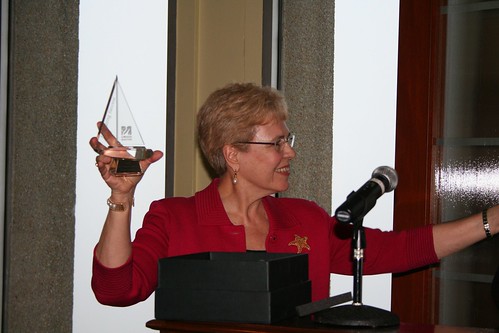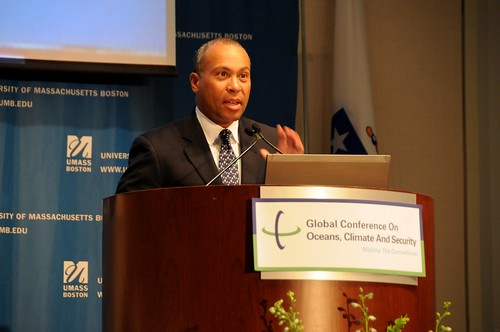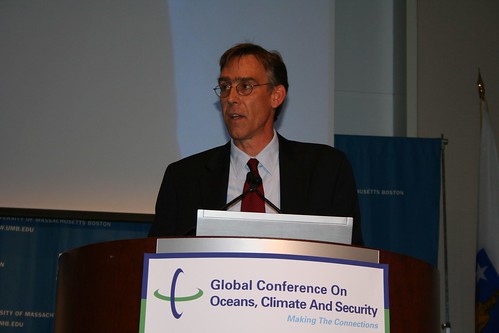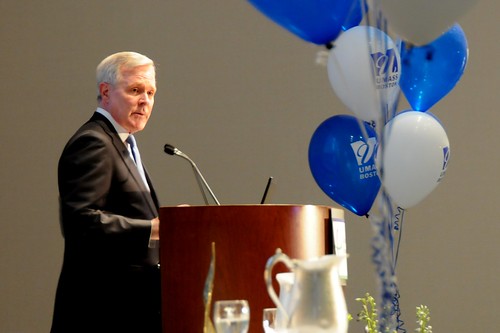At this point, it seems safe to say that the First Global Conference on Oceans, Climate and Security (GC ’12) was a resounding success. Our attendees included representatives from sixteen countries and seventeen states. Sectors attending included the military, private industry, consulting firms, academia, government officials, non-profit organizations, and concerned and interested citizens.
Hundreds of scholars and experts from all different sides of academia came together to address a great number of climate-related issues over the course of those three days.

- May 22, 2012, Robbin Peach, CIOCS Executive Director, speaks at the Global Conference.
Highlights included Keynotes by NOAA Administrator Dr. Jane Lubchenco at the UMass Club, and Secretary of the Navy Ray Mabus and Weather Underground’s Dr. Jeff Masters at UMass Boston, as well as remarks by Massachusetts Governor Deval Patrick. Check out photos of all three days at UMass Boston after the jump!

- NOAA Administrator Jane Lubchenco

- Massachusetts Governor Deval Patrick speaking at the Global Conference on May 22, 2012.

- From left to right, UMass Boston Provost Winston E. Langley, Secretary of the Navy Ray Mabus, CIOCS Executive Director Robbin Peach, and Massachusetts Governor Deval Patrick at the Award Ceremony.

- Robyn Hannigan speaking on her panel on Climate Change, Oceans and Human Health at the Global Conference on May 22, 2012.

- Former CIOCS Program Director and current Director of the National Ocean Council, Deerin Babb-Brott, introduces Weather Underground’s Dr. Jeff Masters for his luncheon presentation.

- Secretary of the Navy Ray Mabus

- CIOCS Staff & Interns post-conference
